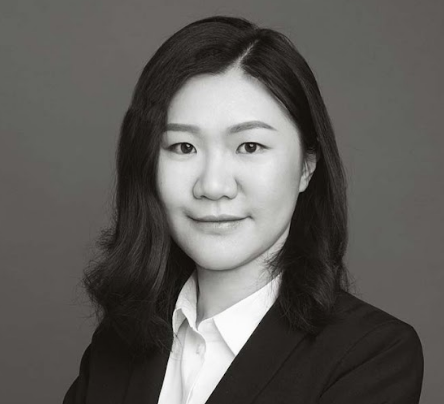
What is Anticancer Bioscience’s competitive edge and what is unique about the pipeline you are developing?
Anticancer Bioscience (ACB) specialises in the development of synthetic lethal therapies. A synthetic lethal drug interaction occurs when the very same genetic and epigenetic changes that promote cancer, confer unique vulnerabilities to cancer cells. These can include apoptotic, metabolic or mitotic vulnerabilities, among others. Identifying and developing drugs that target these vulnerabilities is extremely difficult, and that is what ACB has fostered expertise in accomplishing.
We have several synthetic lethal drug programmes at ACB, but the most advanced programme aims to produce small molecule therapeutics that are synthetic lethal with hyper-activity of the oncoprotein MYC. Accomplishing this goal has required the development of novel screening methods, new sources of small molecule diversity, and unique synthetic lethality validation assays. ACB’s novel, mechanism-informed phenotypic screening system is capable of guiding the identification and optimisation of lead compounds, and uncovering drug targets and predictive biomarkers. Together, our effort has culminated in the identification of multiple classes of highly potent MYC synthetic lethal compounds that are highly efficacious in vivo and readily orally bioavailable.
Biomarker studies are a vital component of any targeted drug development programme, and this is especially true for synthetic lethal therapies. ACB has uncovered markers that alongside MYC expression predict which tumours will be hyper-responsive to our synthetic lethal compounds. Bringing our drugs to the clinic alongside this screening strategy to stratify patients will enable focused and effective targeting of patient tumours.
A final edge for the compounds we are developing lies in the MYC synthetic lethal target that our drugs bind and inhibit. Our lead compounds bind a novel synthetic lethal target. Our studies suggest its inhibition confers lethality in MYC-overexpressing cells, not normal cells. This means that while tumour cells succumb to our drugs, normal tissues will be left relatively healthy.
Another unique programme in the pipeline is contact inhibition restoration, a promising approach that has not yet been fully explored. Loss of contact inhibition is a hallmark of cancer cells. As an innovative cancer therapy, CIR drugs do not necessarily aim to kill dividing tumour cells as most current cancer therapies do. Instead, they can enable cancer cells to re-establish contact inhibition. ACB has established a unique image-based high-throughput screening assay to identify agents that restore contact inhibition and has developed a combination treatment with two drugs identified from the screening. ACB is exploring nanoformulation of this drug combination for selective accumulation and controlled release of active pharmaceutical ingredients into tumour tissues.
What potential do you see for this class of targets?
We see enormous potential for synthetic lethal therapies. The ultimate goal for synthetic lethal therapy is to be able to target indirectly, the oncogenes and tumour suppressor losses that we know are drivers of carcinogenesis, but have until now proven difficult to drug using traditional means. One thing to keep in mind is that we are developing synthetic lethal therapies as stand-alone therapies, but once proven in the clinic they may prove especially potent alongside other therapeutic modalities as components of combination therapies.
At ACB we have deliberately focused on the development of compounds that can be used in a wide variety of cancer indications. MYC, for example, is arguably the most widely expressed cancer protein, as it is overexpressed in more than 70 per cent of human malignancies. It is mutated in some types of lymphomas but genetically amplified in about 28 per cent of solid cancers. In many more cases, however, the overexpression of MYC is due to the loss of transcriptional or post-translational control mechanisms. With our lead MYC synthetic lethal compounds, we observe anticancer activity against cancers derived from a large variety of indications including lymphoma and solid cancers such as stomach, colon, and non-small cell lung cancer.
A second programme at ACB, which is currently in an early preclinical stage, aims to target cancer cells that have lost activity of the p53 tumour suppressor protein. Like MYC, loss of p53 is found in a wide array of human cancers, and developing drugs that attack vulnerabilities enabled by p53 genetic loss-of-function will have a large impact. We aim to make a large difference for patients at ACB, not an incremental one.
What are the latest trends and challenges in cancer drugs development?
There are lots of great ideas and truly brilliant people working in the areas of both basic cancer research and cancer drug development. However, despite the large VC-driven funding rounds that some companies are able to achieve, most ideas do not move forward. We fear that with an ailing economy, this may become an even deeper problem. For Innovation to be the driver of the next generation of drug development, we need to foster risky projects that can have large rewards. We are grateful to our funding partners for seeing this potential in Anticancer Bioscience and are grateful to the talented people that choose to work at ACB.
Oncology has been the primary focus of precision medicine in the past decade. The latest trends in cancer drug development include targeted immunotherapies like immune checkpoint therapies, CAR-T, and mRNA vaccines, and synthetic lethal cancer therapies. ACB, as the pioneer in synthetic lethal approaches to precision oncology, has developed its unique and innovative pipeline based on over 20 years of collaborative research between the founder Dr Dun Yang and his Nobel laureate mentor Dr J. Michael Bishop.
The lack of biomarkers to guide treatments has been a challenge in the field and remains so. Apart from traditional molecular or biochemical biomarkers, new types of biomarkers are arising. Signatures detected in genomic, transcriptomic, proteomic, and metabolomic data can be used as a prediction for treatment response and prognosis. With this knowledge, the next challenge would be how to effectively apply it to provide new avenues for therapeutic strategies. At least, understanding the treatment resistance and developing a rationale combination is certainly needed for durable efficacy.
Ayesha Siddiqui




